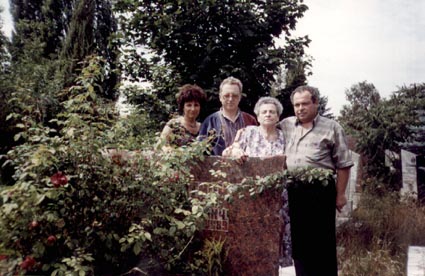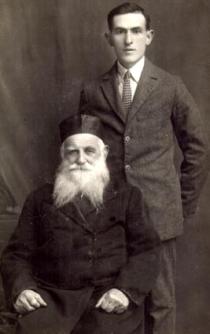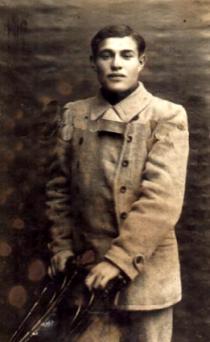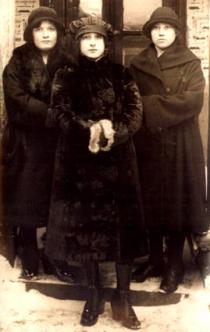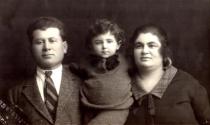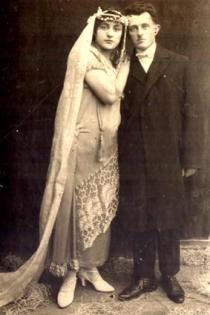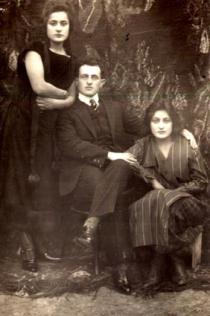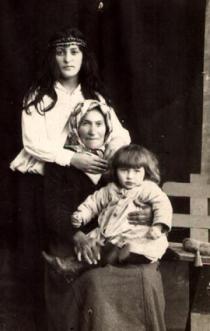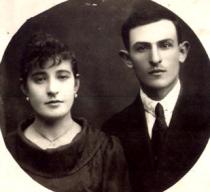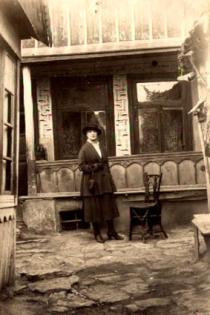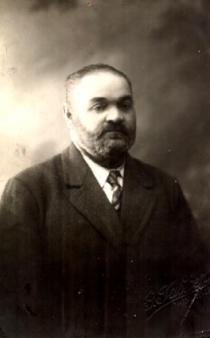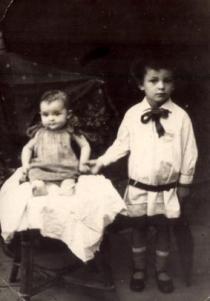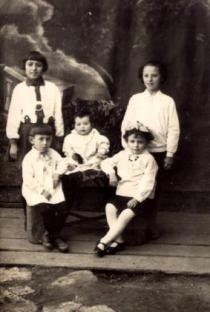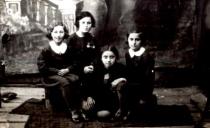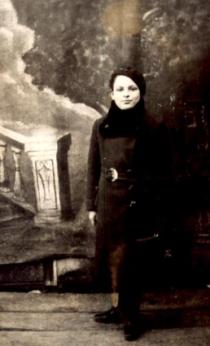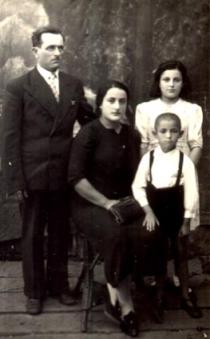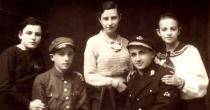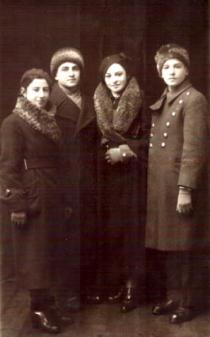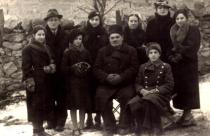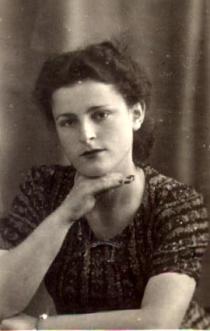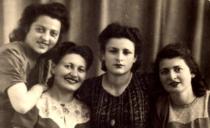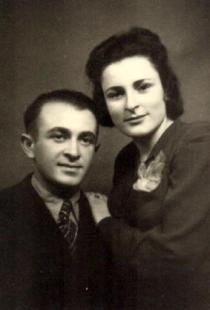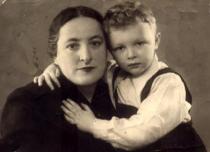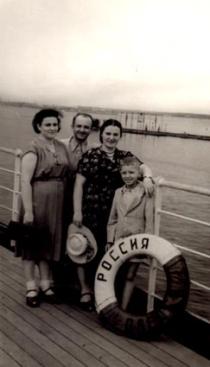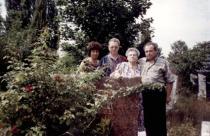This picture was taken by the grave of my husband and father. I, Raisa Roitman, am standing second on the right, hugging my son David, my son Boris and his wife Lidia are to the left. The picture was taken in Kishinev in 2003.
Jewish traditions were always kept only by my father. Of course, my husband and I were atheists. Nahman was a member of the Party. We worked on Saturdays, as Saturday was a working day, but Father always observed Sabbath. He attended the synagogue while he could walk. The kashrut couldn’t be observed, as it was hard to get any food products not to mention kosher ones. There was always matzah for Pesach. Father waited in a long line to get it in the synagogue. Father cooked traditional dishes for the holiday.
David and Boris always felt themselves to be Jewish and were interested in the long Jewish history since their childhood. Father told them many stories. He told them about the town we lived in, about Jewish traditions. I think he plied them with love for the Jewish people. Father lived a long life and died in his sleep in 1988, at the age of 94. He was buried next to my mother in the Jewish sector of the city cemetery in accordance with the rite. He was buried in a shroud. The warden of the synagogue, an elderly Jew, read a prayer.
My children got a wonderful education. The elder one, David, entered the Physics department of Kishinev University. He was an excellent student and graduated with honors. He worked for many years as a theoretical physicist. After perestroika the institute he worked for was closed down and David remained jobless. He decided to become an entrepreneur and founded his own company on sales and installation of computer equipment. His company is prosperous now. David was married, but got divorced. He keeps in touch with his son and helps him. My grandson Pavel, born in 1983, graduated from the police academy. He is currently living and working in Kishinev. He has a two-year-old son, my great-grandson Dmitriy. My son David left the apartment to his wife and lives with me now.
My younger son Boris followed in his father’s footsteps: he graduated from the History Department of Kishinev University. He is married to a Moldovan lady, Lidia. They have a wonderful family. They have two children – Polina, named after my mother-in-law Perl, born in 1985, and their son Sergey, born in 1987. Their children are grown now. Sergey is finishing school. Polina left for Israel to study. I visited her in Israel. We had a good time together. Israel is a marvelous country. I admire it, but I am always nostalgic about my motherland. Polina doesn’t want to leave Israel. She has become a real Israeli citizen. She observes all the traditions there. She has a lot of friends. Polina wants to serve in the Israeli army. She sees her life only there and I am happy she has found what she sought.
My husband died in 1989 of a heart attack. I have been by myself for many years now and I still can’t get over his death. He was a remarkable man – intelligent, thoughtful and kind-hearted. I was barely affected by perestroika and the foundation of the independent state of Moldova. Of course, I wouldn’t be able to live on my pension, but my children are helping me out as they have their both feet firmly on the ground. Besides, Hesed is assisting me a lot as well as other Jews. I receive food and what is most important, I have some moral support. I have a lot of friends among Hesed’s clients. We celebrate Jewish holidays and Sabbath together. I am not religious, but I became a member of the women’s club, where Jewish traditions are studied. I can say that perestroika brought about a revival of Jewish traditions, which is wonderful.
